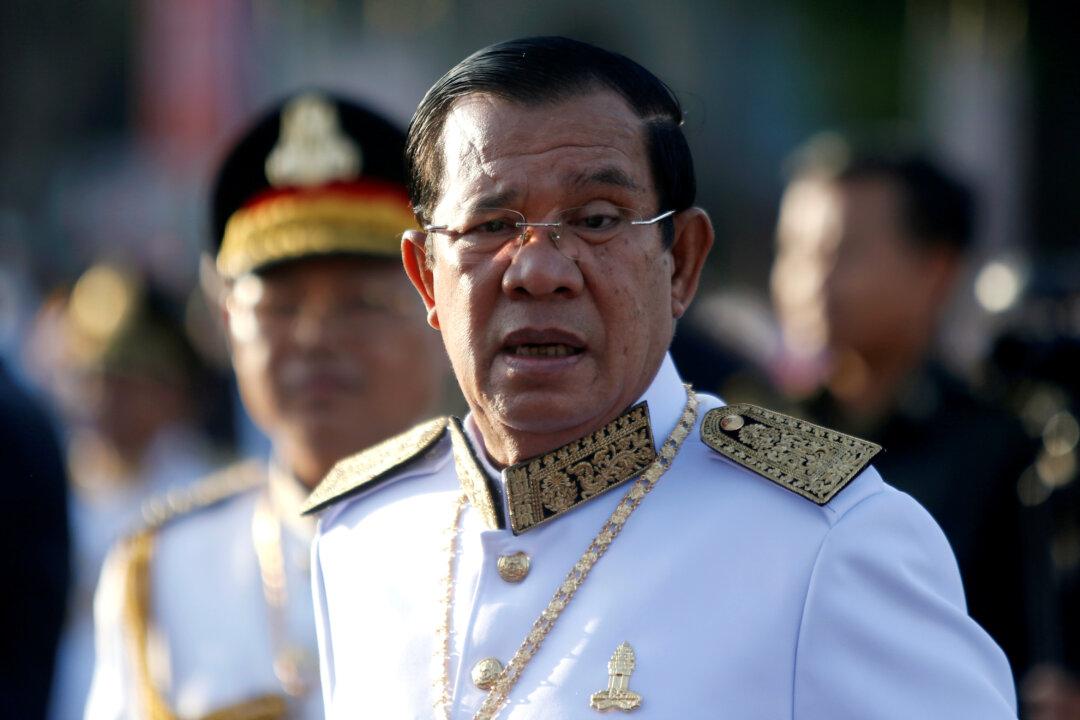PHNOM PENH, Cambodia—Cambodian Prime Minister Hun Sen said on July 29 that an additional $40 million would be spent on weapons from China to modernize the Southeast Asian country’s military.
Cambodia’s military ties with ally China have been under increased scrutiny after concerns expressed by the United States and a report—denied by Hun Sen—of a secret deal to allow Chinese forces to use a Cambodian naval base.





